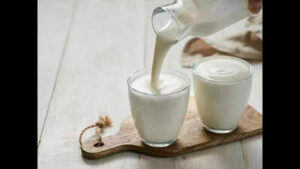Fonterra has dropped in the world dairy company rankings, as measured by Rabobank.
Fonterra has dropped from sixth place to ninth in Rabobank’s latest global top 20 dairy company rankings, reflecting a major reshuffle in the revenue performances of the world’s biggest producers.
The report noted Fonterra had
sold its Chilean subsidiary, Soprole, in early 2023, resulting in an estimated drop in revenue of about US$800 million ($1.34 billion).
Its sale of DPA Brazil, a joint venture with Nestle, to Lactilis is pending.
Fonterra last week said it had delivered good earnings through 2023 and had a strong balance sheet, but it had been developing plans to reduce costs across the co-op by about $1 billion over the seven years to 2030.
The co-op last month slashed its milk price forecast to reflect sharply weaker world auction prices.
In its report, Rabobank said only five of the top 20 companies retained the same position as last year in its 2023 Global Dairy Top 20.
Lactalis (France) managed to hold its top spot, while Dairy Farmers of America (US) moved up to second place, pushing Nestle (Switzerland) into third.
“A stronger US dollar influenced position changes in the ranking, with the combined turnover of the Top 20 companies jumping 7.4 per cent in US dollar terms, following the prior year’s gain of 9.3 per cent,” the report said.
Fuelled by a second round of war-induced inflation, the report says, European Union dairy product prices rallied to new annual average highs.
“In Oceania and the US, milk powder prices were also elevated. At the same time, lower-than-anticipated milk production growth in the main exporting regions and decent domestic demand contributed to an overall tight dairy market with limited exportable surpluses during most of 2022,” it said.
Rabobank dairy analyst Richard Scheper said overall, year-on-year average price gains in butter, cheese, milk powders and other dairy products set the stage for double-digit turnover growth in local currencies in 2022.
“In the end, most turnover gains were absorbed by exploding costs, leaving little left on the companies’ bottom lines,” he said.
“Many dairy companies paid record-high average farmgate milk prices to offset large farm input costs.
“At the factory gate, rising energy costs and the availability of natural gas – especially in Europe – were the largest concerns for energy-intensive dairy processing.
“Costs for other components, such as logistics, packaging materials and labour, also escalated in 2022,” Scheper said.
Jamie Gray is an Auckland-based journalist, covering the financial markets and the primary sector. He joined the Herald in 2011.





